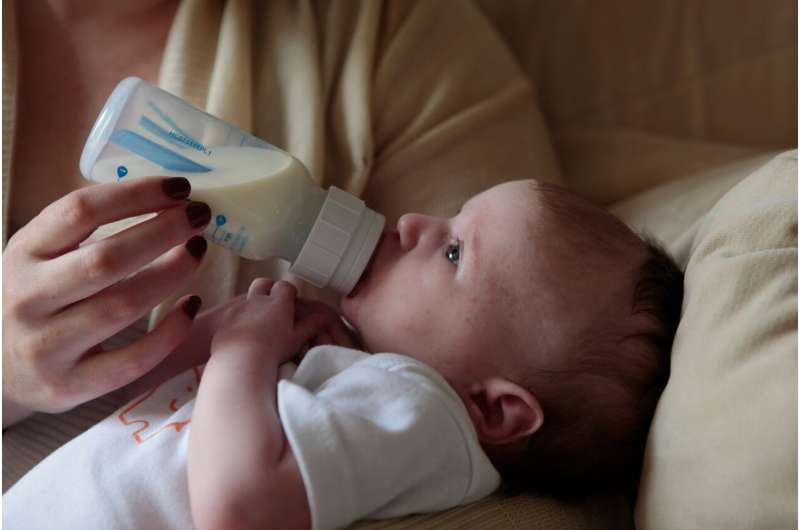This article has been reviewed according to Science X's editorial process and policies. Editors have highlighted the following attributes while ensuring the content's credibility:
fact-checked
peer-reviewed publication
trusted source
proofread
US women who use a pump found to breastfeed 21 weeks longer on average

Among a large group of U.S. mothers who breast fed between 2016 and 2021, breast pump use was associated with 21 additional weeks of breastfeeding on average, according to a new study from researchers at Yale School of Medicine.
In the first study to examine the relationship between pump use and breastfeeding duration since the Patient Protection and Affordable Care Act first expanded access to pumps with the insurance coverage mandate in 2012, Yale researchers examined data from a nationally representative sample of more than 19,000 U.S. mothers. The Yale team says just over 91% of respondents reported ever using a breast pump.
"This statistic demonstrates the near ubiquitous practice of pump use among breast and chestfeeding families in the U.S. today," said lead author Deanna Nardella, MD, a research fellow in the Department of Pediatrics at Yale School of Medicine.
"Our findings support the need for further research that improves our understanding of effective and safe pump use to better support the many U.S. families in reaching their personal infant feeding goals and using this medicabl equipment appropriately."
The research is published in The Journal of Pediatrics.
Using national data from the CDC Pregnancy Risk Assessment and Monitoring System, researchers found that breastfeeding mothers who reported ever using a pump had a predicted breastfeeding duration nearly 5 months (21 weeks) longer compared with mothers who did not use a pump. Pump users also were seen to have a significantly lower hazard of breastfeeding cessation on average compared with pump non-users.
Researchers say pumps may make the greatest difference for groups disproportionately affected by breastfeeding inequities. "Pump use among non-Hispanic Black and Native American women had the greatest magnitude of association with longer breastfeeding durations in our predictive model," Nardella said.
"Ensuring access to pumps for U.S. families could help mitigate known inequities in breastfeeding duration rates." Nardella recently wrote on this topic in the The Yale Journal of Biology and Medicine.
The research team hopes its work can help advocacy and policy efforts to ensure access to quality pumps for U.S. families, as well as contribute to evidence-based practices and guidelines for safe, effective pump use, all of which are "key for promoting more equitable breastfeeding outcomes for families and ensuring best medical practice," said Nardella.
More information: Deanna Nardella et al, Quantifying the Association Between Pump Use and Breastfeeding Duration, The Journal of Pediatrics (2024). DOI: 10.1016/j.jpeds.2024.114192
Deanna Nardella, Pumps: A Possible Tool to Promote More Equitable Lactation Outcomes, The Yale Journal of Biology and Medicine (2024). DOI: 10.59249/MWYW7163



















